CFMEU addicts offered cut-price rehab at luxury centres in Asian tropics
AMID reports that ice has become a growing problem on building sites, the CFMEU is funding the treatment of members battling drug addictions at luxury overseas rehab centres.
Illness
Don't miss out on the headlines from Illness. Followed categories will be added to My News.
EXCLUSIVE
ONE of the country’s biggest unions is bankrolling the treatment of drug-addicted members at luxury overseas rehab centres.
The Construction, Forestry, Maritime, Mining and Energy Union (CFMEU) is offering members special cut-price deals at one of Thailand’s most exclusive clinics, The Dawn in Chiang Mai, to kick their habits.
On its website, which sports the CFMEU logo among others, The Dawn describes itself as
“Asia’s leading, luxury rehab facility”, with treatments costing thousands of dollars a month.
The cut-price deals are available to the union’s national membership base of 150,000 workers and their families, with some members also able to receive financial support to help cover the remaining cost of their treatment.
ICE NATION: A journey into despair
REVEALED: The ice capital of Australia
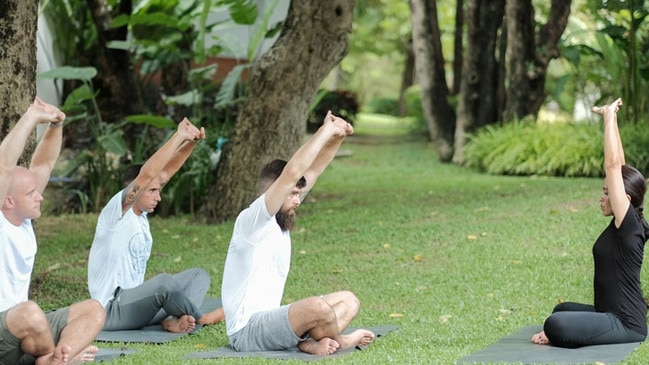
CAUSE FOR CONCERN: Young tradies using ice
CFMEU assistant secretary (Victoria and Tasmanian branch) Shaun Reardon said members were helped financially on a case-by-case basis, with money coming from discretionary union funds or raised as needed.
There was no set amount allocated.
“We do whatever it takes. If there is a family that needs help they come to us and then we look at each individual case but the long and the short of it is we don’t leave people high and dry,” he said.
CEO of The Dawn Ohm Poolsawaddi said there were currently two family members of a CFMEU member at the rehab centre on the special union rate.
He was now in talks with Incolink, the CFMEU’s redundancy fund, about the role it may play in supporting members to go to The Dawn in future.
“We’ve been in touch with them, and it’s still in progress, but they are happy to support their union members financially for them to be able to afford treatment because in Australia, my understanding is, there is a huge need for rehab,” Mr Poolsawaddi said.
PAUL CARTER: Former NRL star opens up about drug addiction
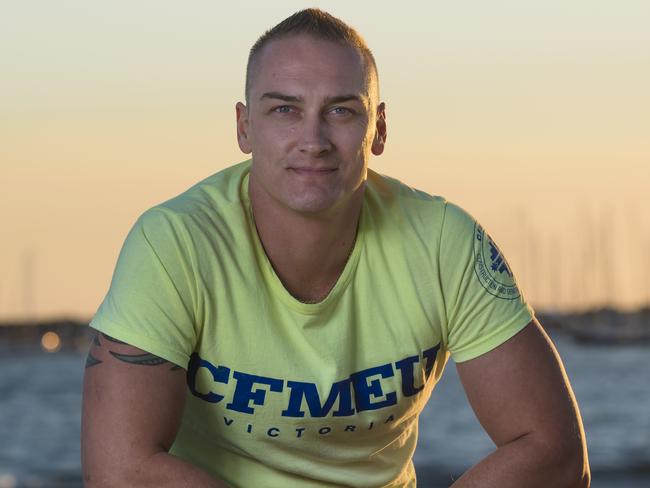
Former ice addict Mark Dryden said the CFMEU donated $10,000 towards his treatment at Thailand’s exclusive DARA rehabilitation centre in late-2015.
The donation, which was “raised internally”, helped fund his two-month stay at DARA and helped him quit a $1000-a-day ice habit, the construction worker said.
Grateful for the assistance, he initiated a relationship between the CFMEU and The Dawn, in a bid to help other union members overcome their addictions by arranging discounted fees for rehab, Mr Dryden said.
He was now working to secure discounted rates at The Dawn for all Australian addicts, not just CFMEU members, he said.
Mr Reardon said he had known Mr Dryden since he was a child growing up on Victoria’s Bellarine Peninsula, so when the worker asked for support from his employer and the union to combat his raging ice addiction, he chose to help.
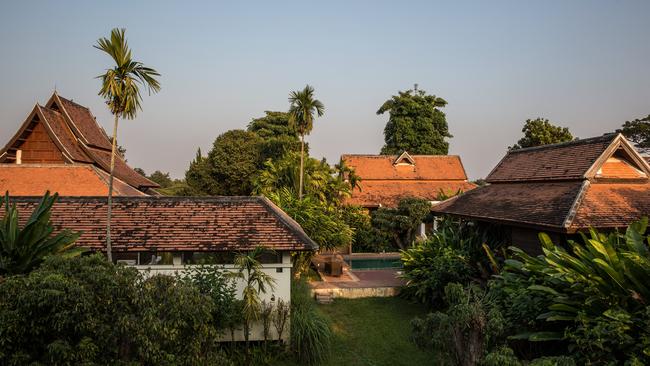
At the time he helped Mr Dryden, ice was a growing problem on building sites and a pilot drug testing program — supported by the union — was being rolled out in Geelong, where Mr Dryden was working, he said.
There was a sharp focus on drug use by tradies and a push to help workers who requested it, and also a dire lack of drug detox beds in Australia, with long waiting lists for rehab services, he said.
“We knew if members put their hand up and admitted they had a problem, they shouldn’t be targeted,” Mr Reardon said. “So we were lucky that we had a good relationship with the builder, who gave Mark time off for rehab, I raised some funds and we tried out the Thailand scenario because at the time it was something like a six-month wait to get in anywhere in Geelong or even Victoria for that matter.”
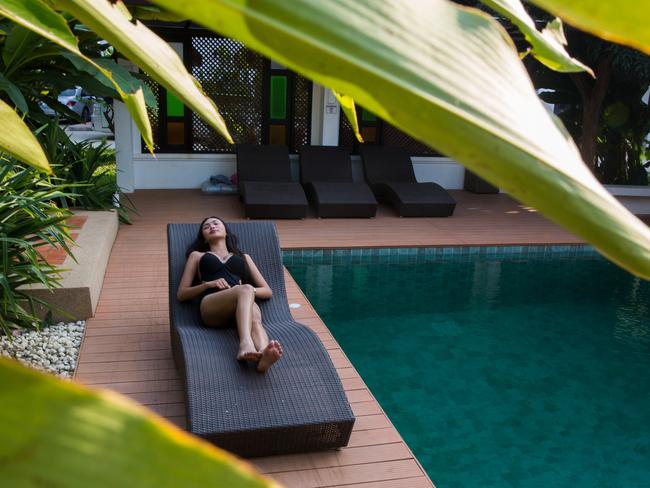
An advertising feature on The Dawn in the Spring 2017 issue of the CFMEU Victoria Worker magazine states members will receive 30 per cent off the regular price of treatment.
The first five people to take up the deal received a 50 per cent discount.
The Dawn normally charges about $13,000 a month for treatment.
The CFMEU also supports the Construction Industry Drug and Alcohol Foundation and a 28-day residential drug, alcohol and gambling rehab in Sydney called Foundation House, which relies largely on charitable donations.
Those partnerships hit the headlines during the Royal Commission into Trade Union Governance and Corruption in 2015 when Master Builders Association executive director Brian Seidler revealed he had stopped supporting the initiatives after discovering the CFMEU had been siphoning money raised for its own use.
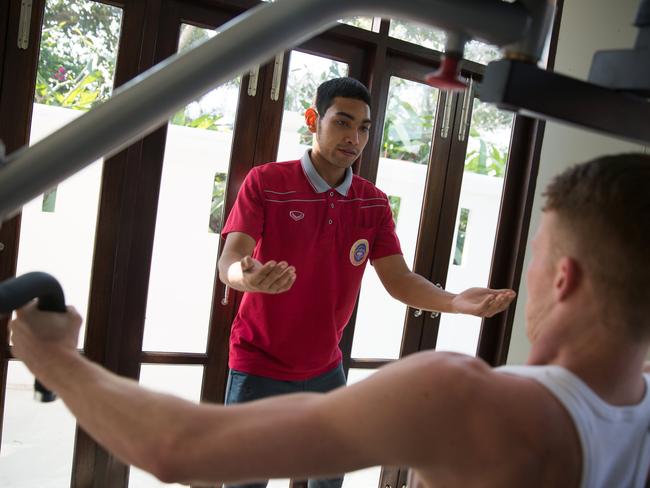
Other Australian unions contacted by News Corp National this week said they supported members battling drug and alcohol addictions through free counselling, education and support services.
Some said they also put members in touch with rehab services and centres.
News Corp understands at least one other building industry union has tapped into discretionary funds in the past to help members pay for residential drug or alcohol rehabilitation, but at Australian rather than overseas clinics.
DRUGS ON CONSTRUCTION SITES: THE FACTS
TWENTY-ONE of nearly 5000 workers have tested positive to drugs or alcohol in union-sanctioned tests on Victorian construction sites over the past two years.
The results of testing — carried out by Victoria’s Holmesglen Institute as part of a pilot — were provided to the Electrical Trades Union this week.
They reveal eight workers out of the 4870 randomly tested on Victorian worksites over the last two years had opiates in their system, five had amphetamines or methamphetamines, seven had alcohol and one had cocaine.
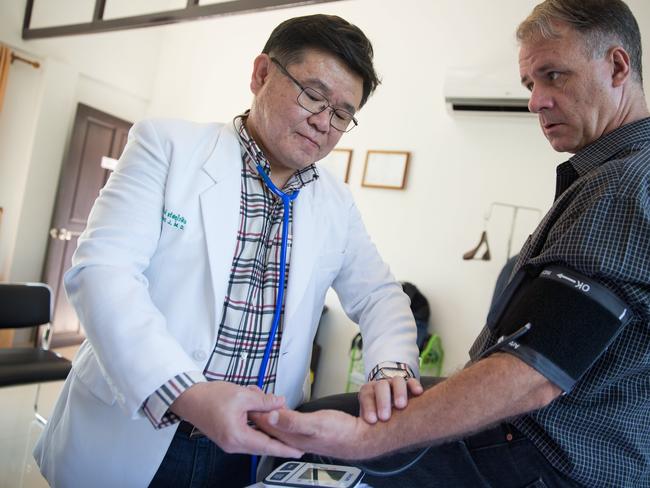
Of the eight workers who tested positive for opiates, one had heroin in their system and the other seven had codeine, four of whom had declared their recent drug use before testing and for whom the amount of codeine detected was consistent with prescribed use, the Holmesglen report states.
Of the seven workers who tested positive for alcohol, only four returned a positive result a second time, when tested an hour after the initial test, the report shows.
Secretary of the Electrical Trades Union Victoria branch, Troy Gray, said the results suggested less than a half-a-per cent of workers on Victorian construction sites were drug-affected on the job.
“This is a good news story I think,” he said.
The union-supported, drug testing across major Victorian construction sites had started as a pilot program two-years-ago, Mr Gray said.
“It’s something we have championed, along with the CFMEU over the last couple of years,” he said. “Nearly 5000 construction workers — that’s a hell of a lot of tests done out there. The figures are undeniable. The construction industry has been presented as a sort of sinful den of drug abuse but these figures show that while there is an issue, it’s no worse than in the general community.”


